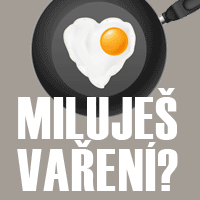
From lemon juice to plastic forks: Quick tricks to deal with cancer treatment side effects

When Dr. Carla Kakutani was in the thick of her first go-round of chemotherapy, it was a struggle to figure out her daily meals. She was diagnosed with stage 4 metastatic breast cancer two years ago and her doctors started her on a chemo regimen with some brutal side effects.
Kakutani, a primary care doctor in Winters, California, developed oral thrush, which made her mouth so sensitive that she had a hard time eating anything with texture, and the things she could eat tasted totally different.
“I love food so this was definitely the hardest part of treatment for me,” Kakutani said. “Everything just tasted like cardboard. Sawdust.”
After trying out different foods that hurt too much to eat or didn’t appeal to her temporarily scrambled taste buds (even ice cream was intolerable), Kakutani found she could stomach cereal or graham crackers soaked in milk until they were soft and mushy.
“It was kind of comforting, like a little kid food,” she said.
Many people with cancer, such as Kakutani, have had to come up with their own tried-and-true ways to combat cancer treatments’ common and difficult side effects like “chemo mouth,” nausea, fatigue, neuropathy and more.
In some cases, there may be medical options regarding ways to help manage side effects so it’s always good to check with your provider, but we wanted to hear patients’ – and their loved ones’ and care providers’ – favorite workarounds. We asked and you responded via Facebook, Twitter, email, through interviews and more. To find out some of the best suggested “hacks” to combat side effects, read on:
Eating during treatment. This is a big one — chemotherapy and other treatments can change the body’s response to food in many ways. There’s the nausea, the oral thrush, the mouth sores. And then there’s the fact that everything can taste completely different.
“You and I might be tasting something at 80 percent, while somebody with cancer is tasting at about 20 percent,” said Rebecca Katz, chef and author of “The Cancer-Fighting Kitchen,” a cookbook about cooking and eating through cancer treatment. “How do you deal with that, when somebody is going through treatment and their taste buds are basically a train wreck?”
One tip is to try completely new foods, said Katz, who first started applying her culinary talents to the “chemo mouth” problem 14 years ago when her father was undergoing treatment for cancer of the larynx. If your favorite food is roast chicken, maybe save that dish for the end of the chemo cycle when taste buds are recovering.
Try something you’ve never had before, “then the expectation of roasted chicken tasting like roasted chicken is gone,” she said. Katz suggested carrot-ginger or Moroccan chickpea and sweet potato soups as recipes many may not have tried before.
Like many going through chemo, Kakutani couldn’t even tolerate plain water.
“You get your taste memories all ready for a certain flavor and then it was like, ‘Wait a minute, this isn’t it.’”
Kakutani found she liked the taste of vitamin water when plain water wouldn’t do. Katz suggests if water tastes metallic, add lemon. Metallic tastes in food can be combatted by a combination of lemon and maple syrup (and put away the metal silverware for now). If everything tastes like cardboard, add sea salt until there’s some flavor.
Strong and savory flavors can also help, said Patty McDonnell, a dietician and nutritionist at Seattle Cancer Care Alliance, Fred Hutchinson Cancer Research Center’s treatment arm. Certain flavors are likely to come through the haze of chemo mouth, like vinegar, almond, cinnamon, ginger, maple and mint. Even spicy foods can help, McDonnell said, if the patient can tolerate them.
Other eating-related hacks:
Nausea. Ginger chews, ginger ale and saltines helped Kakutani. Eat small amounts of food throughout the day, said Joanne Taylor, who was first diagnosed with breast cancer in 2007. She also found that chicken, salmon, broccoli and beet juice helped her feel better during chemo.
Dry mouth. Some chemotherapies and radiation to the head and neck can cause dry mouth. Don’t try to choke down dry foods, McDonnell said, but try sandwiches or crackers dipped in soup; yogurt; pudding; French toast; or pasta with lots of sauce. She also recommends rinsing your mouth with water before eating and taking small sips of a drink throughout the meal. Club soda can also help, said Andrew Lin, an oncology nurse practitioner at the University of Washington Medical Center.
Mouth sores/other pain. Swishing or gargling with salt water can help combat mouth sores from chemo or radiation to the head or neck, Lin said, and some of his patients have found relief from applying cold, already-brewed tea bags. Mushy and bland foods were key during chemo for Kakutani, who also ate a lot of oatmeal and other soft cereal, soup, soft tofu and refried beans.
Difficulty swallowing. For patients with cancers of the brain or head and neck, it can be hard to swallow many foods, even water. Katz made a lot of blended, creamy soups for her father when he was undergoing treatment for his larynx cancer. “He couldn’t have anything really spicy because he was so raw from the radiation,” she said.
Fred Hutch biologist Dr. Andrew Taylor said his late wife, Dr. Meg Holmes, who was also a scientist at the Hutch and had a type of brain cancer called glioblastoma, couldn’t swallow anything too watery. Holmes didn’t like the taste or consistency of the thickening agent her hospice provided, Andrew Taylor said, but found the fermented milk known as kefir more to her liking.
For those having trouble swallowing, it’s also a good idea to add high-calorie ingredients like nut butters, avocado or oils to their blended foods, McDonnell said. “If each bite or sip has become a challenge, you want to make every bite count,” she wrote in an article for Coping Magazine.
Neuropathy. Chemo can cause peripheral neuropathy, damage to the nerves that sense touch and temperature. This often feels like numbness in the fingers and toes, but it can also manifest as increased sensitivity to hot or cold. What can help?
- Rubbing hands or squeezing fingertips frequently may prevent numbness or pain, Lin said.
- Dr. Elizabeth Prescott, a colon cancer survivor and director of corporate and foundation relations at Fred Hutch, found she couldn’t even touch room-temperature metal during her chemo because it felt too intensely cold to her. She made sure to keep mittens easily accessible if she needed to touch anything cold, like food out of the fridge. She also stocked up on warm socks and sturdy shoes when walking was uncomfortable.
- Diane Mapes, Fred Hutch writer and breast cancer survivor, used pliers to open water bottles when her hands couldn’t grip tightly enough. Mapes also asked her pharmacists for non-childproof bottles for prescription meds.
Fatigue. Both the disease itself and cancer treatments can cause fatigue. Rest and taking it easy is important, of course, but there may be other lifestyle modifications patients can try.
- Exercise helped both Prescott and Joanne Taylor get through chemo. “It really depends on the individual, but to the extent possible, getting your heart rate up helps with fatigue and sleep quality,” Prescott said.
- Make sure you’re taking in enough calories, McDonnell said. Again, eating small meals or snacks every few hours can help. McDonnell recommends packing portable snacks with protein, like nuts or cheese, to bring to lengthy treatment appointments or other outings.
Hair loss.
- When she lost her hair during chemo, Mapes liked to wear lightweight, colorful scarves with the ends dangling loose so she still had the feeling of hair against her shoulders.
- Like many going through chemo, Mapes shaved her head before the hair loss started, but she still had to deal with shedding stubble, she said, so she used a clothes lint roller on her head to catch all the annoying little bits.
- Wigs bought before you lose your hair may be too loose, especially if you have thick hair. See more great tips on wigs from breast cancer survivors at Living Beyond Breast Cancer.
Everything else.
- When Andrew Taylor’s wife became bedridden, a hardware store clerk recommended they buy a battery-powered wireless doorbell system for Holmes to summon her caregivers when they were elsewhere in the house. They mounted the bell push on a stick so Holmes could reach it easily in bed and her caregivers carried the speaker part with them elsewhere in the house.
- Mapes’ nurse recommended putting dried beans in freezer bags and then freezing them to use as moldable ice packs to help with pain from Mapes’ surgery to remove lymph nodes under her arms.
- A support group for cancer patients led by a qualified therapist has been a lifesaver for Kakutani. “If I had a magic wand to change cancer treatment, I would make it so everybody had the opportunity to get mental-health support and proactively bring it to them, rather than waiting until somebody is falling apart at the seams,” she said.
For more ways to cope with treatment side effects, visit the SCCA’s symptom management site or the National Cancer Institute’s side-effects page.
What are your best hacks? Keep the conversation going by telling us on Facebook.
Rachel Tompa is a staff writer at Fred Hutchinson Cancer Research Center. She joined Fred Hutch in 2009 as an editor working with infectious disease researchers and has since written about topics ranging from nanotechnology to global health. She has a Ph.D. in molecular biology from the University of California, San Francisco and a certificate in science writing from the University of California, Santa Cruz. Reach her at rtompa@fredhutch.org.
By Rachel Tompa / Fred Hutch News Service





